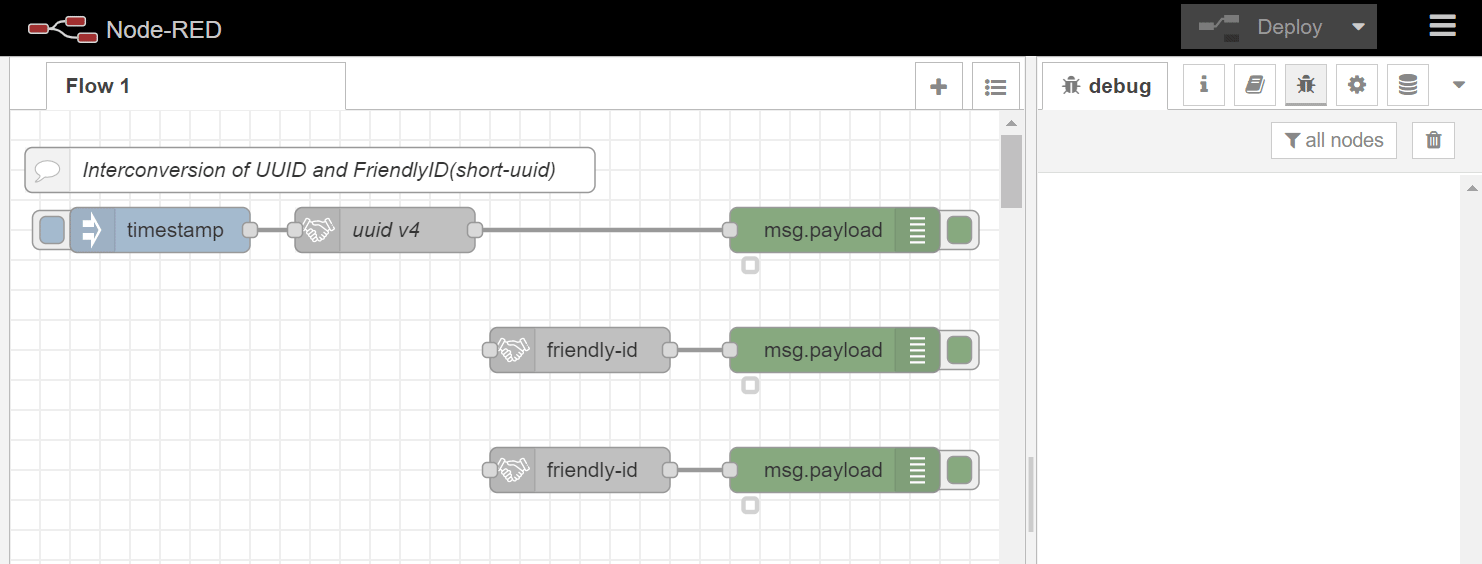

You can get a unique ID in the terminal by using npx nanoid. It also supports PouchDB, CouchDB WebWorkers, Rollup, and libraries like React and Reach-Native. 0123456789ABCDEFGHIJKLMNOPQRSTUVWXYZ_abcdefghijklmnopqrstuvwxyz-Īlso, NanoID support 14 different programming languages, which are, C#, C++, Clojure and ClojureScript, Crystal, Dart & Flutter, Deno, Go, Elixir, Haskell, Janet, Java, Nim, Perl, PHP, Python with dictionaries, Ruby, Rust, Swift 4. Instead of having 36 characters in UUID’s alphabet, NanoID only has 21characters.
Node uuid generator generator#
But, NanoID uses crypto moduleand Web Crypto API which is more secure.Īlso, NanoID has used its own algorithm called a uniform algorithm during the implementation of the ID generator instead of using a random % alphabet 3. In most of the random generators, they use unsafe Math.random(). With the application growth, these numbers become visible. For instance, an object using NanoID is small and compact for data transfer and storage. The size reduction directly affects on size of the data. There are over 5.3 x 10 36 unique v4 UUIDs. UUID Version-4 Version-4 UUIDs are randomly generated.

When using our version-3 or version-5 UUID generators you will be asked to enter a 'namespace' (or pre-defined UUID identifier) and 'name'. The UUIDs generated by this site are provided AS IS without warranty of any kind, not even the warranty that the generated UUIDs are actually unique. When a pre-defined namespace identifier is used we convert that identifier to a UUID internally. The Version 4 UUIDs produced by this site were generated using a secure random number generator. Furthermore, the size limit has been used to reduce the size from another 35%. A Version 4 UUID is a universally unique identifier that is generated using random numbers. Unlike UUID, NanoID is 4.5 times smaller in size and does not have any dependencies. Since NanoID uses a larger alphabet than UUID, a shorter ID can serve the same purpose as a longer UUID.

It boils down to the alphabet used by the key. However, the main difference between these two is simple. I hope these numbers have already convinced you to try out NanoID.


 0 kommentar(er)
0 kommentar(er)
